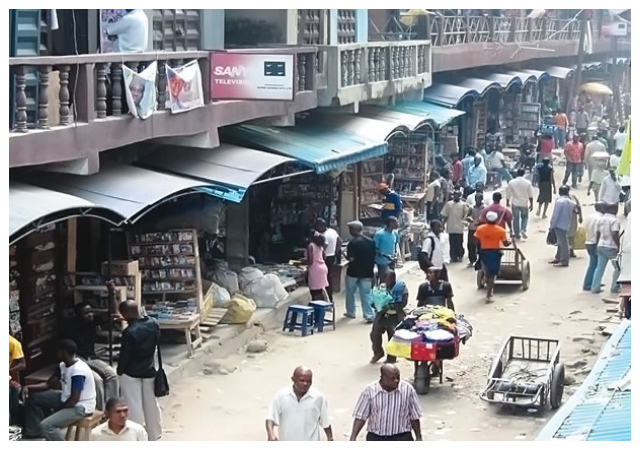
The Lagos State administration, led by Governor Babajide Sanwo-Olu, has reopened the Alaba International Market as well as a few other marketplaces at the Trade Fair Complex, Ojo.
According to what Naija News is aware of, the Lagos State Government had previously closed the markets due to improper garbage management, unpaid waste invoices, and other environmental infractions.
Tokunbo Wahab, the commissioner for the environment and water resources, however, said in a statement on Saturday that the decision to reopen the markets was made following a careful assessment and the application of stringent environmental regulations.
He went on to say that the markets weren’t reopened until the environmental issues had been addressed, rejecting any notion that there were political reasons for the shutdown. Wahab underlined that in order to maintain a clean and healthy environment around business establishments, the market’s temporary shutdown was an essential action.
“I state emphatically that the closure of those markets had no ethnic or political motives as it was done to ensure cleanliness and environmental sustainability for the good of all residents.
“These standards were set to guarantee that businesses in the state operate in a manner that is not detrimental to the environment and the well-being of the people,’’ Wahab said.
He emphasized the need of keeping a harmonic balance between business and environmental health and said that enforcement would continue since the government would not think twice about closing any corporate facilities or markets that were deemed to be deficient.
Dr. Muyiwa Gbadegesin, the managing director of the Lagos Waste Management Authority, commented on the reopening of the markets and stated that the organization collaborates with market officials to guarantee that environmental criteria are met. According to him, it’s critical that markets function in an environmentally and commercially sustainable manner.
“We have standards that each market in the state has to comply with to make our business environment clean and healthy for buyers and sellers.
“These include proper waste management, zero tolerance for open burning of waste, and zero tolerance for dumping of wastes in the drainage channels. Others are the engagement of market policing personnel to monitor market sanitation, and observance of distance from road setbacks, medians, and market surroundings to avoid indiscriminate dumping.
“We must also ensure the eradication of street trading and trading on road medians and shoulders, which obstruct the free flow of traffic.
“Tariffs must also be fully paid as any violation of the stated regulations would attract penalties and possible subsequent closure of offending markets,’’ he said
Gbadegesin urged users and business owners to show commitment to environmental sustainability through proper waste disposal and adherence to environmental laws to prevent market closures.
